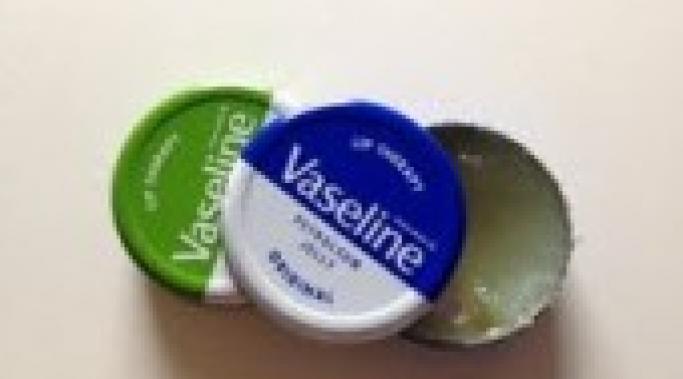Blogs
I am SuperWoman when it comes to having innovative ideas. I have so many possible inventions in my head that I would be a millionaire if I were able to bring a fraction of them to life. The issue? I am the SuperWoman of great ideas; I am no super hero of following through. Of course, you don't need to be a super hero to find success ...
It’s obvious that self-harm and self-esteem are linked in some way or another. Typically, if someone is feeling down in the dumps, they are going to try to find a way to get rid of that feeling. When self-harmers feel this way, they turn to one of the only coping skills they know – cutting, burning, hair pulling, scratching or head banging (as well as others, of course).
When struggling with any kind of mental illness, it is extremely tough to bounce right out of a negative place. It’s easy to listen to therapists, friends, teachers and even bloggers when they tell you to “Keep your chin up” or “Shake it off”, but is it easy to actually shake off that feeling?
Not usually.
Four years ago, I was diagnosed with rapid-cycling cyclothymia. It’s like a milder version of Bipolar Disorder, complete with hypomanic and depressive cycles, but I can cycle several times within a week, or even a day. (read: Rapid Cycling Bipolar Disorder: Symptoms, Treatment, Effects)
No two days are alike. I realize that it’s difficult to understand. Things change so quickly that it confuses me, let alone an outside observer. There is so much misinformation “out there”, that it’s tough for people to piece together an accurate picture of this condition. So I thought I’d take the reader on a journey of what a day could be like when I’m especially rapid-cycling.
Depression, and mental illness in general, has gotten a lot of attention in the last few years. The internet and social media abound with knowledge and support for the myriad disorders from which we suffer.
The same could not be said twelve years ago when I received my first official diagnosis for my depression.
Like a film of cloudiness that filters the sunlight on a hazy day, my son Ben’s schizophrenia obscures some of the qualities that make him so dear. Without schizophrenia treatment, his abilities to connect, care, feel joy and share love seem almost impossible to see. With treatment, they are closer to the surface – but the 25% of him that is still obscured is sometimes heartbreaking, no matter how grateful we are that he is functional and mostly present. The presence of these clouds is lighter then, more like a haze than the thick formations when he is fully symptomatic. Still, Ben’s best qualities often seem dulled by that haze -and I miss the open, joyful child I used to know.
But sometimes, even the haze breaks – for an amazing moment – and I get a visit from Ben’s best self. Yesterday, I got a glimpse of his empathy, one of the qualities that get obscured as a negative symptom of schizophrenia.
It happened because of a tin of lip balm and it gave me a moment of joy and hope.
Why We Must Keep Developing New Schizophrenia Treatments
There is always something that triggers the interest, want or need to self-harm. Listing self-harm triggers could go on forever, but after looking around at others who have self-harmed, as well as my own background, I found three major triggers that seem to be factors in the self-harming world. The three self-harm triggers that I noticed popped up the most were family, relationships, and bullying.
Hello, I'm Patricia Lemoine. I'm glad to be joining Jess Hudgens in writing the Surviving ED Blog. I suffered from bulimia as a teen and in my early 20s. Undiagnosed and untreated for almost a decade, my eating disorder got out of control in 2006. I now consider myself recovered from bulimia, though I sometimes suffer from anxiety, mostly related to food. I strongly believe eating disorder recovery is possible, but it’s an everyday choice since I must manage daily anxieties by not self-harming with food restriction and/or binging.
Talking with a teacher is always hard. It's about advocating for your child. It's especially hard if the teacher has already heard through the grapevine or seen your child's school record. But, what if a new teacher does not know anything about your child?
For years, advocating has been a part of my life. I've met with teachers, after-school counselors, etc. all to deal with Bob's behavioral and academic issues. That's my role as the parent. Meeting with anyone to talk about Bob should be a breeze, but it is the first time in a long time that I'll be talking with someone who has no idea of Bob's ADHD.
I thought I was done with writing about eating disorders.
I developed and started writing HealthyPlace's Surviving ED blog in 2010. Readers saw me through several relapses, struggles and many tears, and the everyday ups and downs of recovering from an eating disorder.
In December 2012, I wrote a highly optimistic good-bye post, declaring that I had found my dream job and wishing everyone well. I was done, done with anorexia and writing about it. I was moving on, to a bright and endless future.
First I found out the job wasn't such a dream after all.
Today I found out I am overweight and need to lose some pounds, putting me on par with the majority of Americans.
I can't believe it.
Learn how to talk to your children in a way that builds their self-esteem, tips to improve your communication with kids.








I believe she will only be able to rid herself of her demons, and hopefully her BPD as well, when she's ready to confront the abuse of her father. If she can put the blame where it belongs, she may stop projecting that victim/perpetrator cycle on the present men in her life. These demons are a metaphor for the purgatory she has created for herself. That reality has consequences in the real world, but it need not be real in the tangible sense. Exorcising her demons will require the expenditure of real physical energy and probably the destruction of aspects of her personality. If this ever happens, and it's possible but not probable, then these demons will evaporate. They are only as real as one's personality is real. In short, reality is not the question, it's what you make of the things you feel to be real.